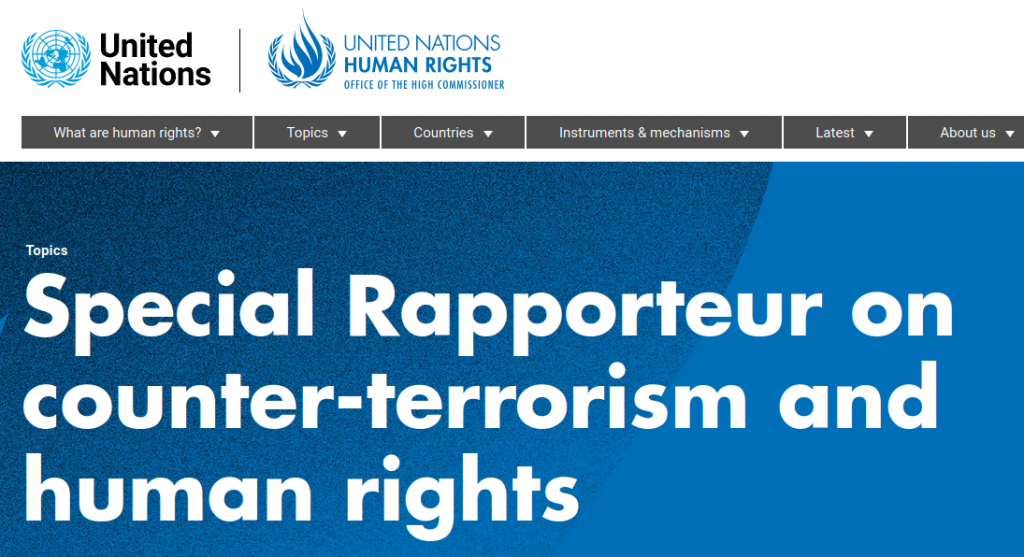Human Rights and “Countering Terrorist Travel”
In late 2023 the U.N. Special Rapporteur on Counter-Terrorism and Human Rights released perhaps the most significant independent assessment to date of the human rights implications of travel surveillance and control.
The Special Rapporteur’s report was released without publicity on the next-to-last day of the Special Rapporteur’s term. Aside from an article by Statewatch, it got little notice.
A year later, an update from Privacy International reminds us of the Special Rapporteur’s report and calls attention to how little its recommendations have been heeded — and how urgently important they remain.
The Special Rapporteur’s report provides both a call to action and an analysis of travel surveillance and control as a human rights issue.
The report by Special Rapporteur Fionnuala Ní Aoláin and her staff reviewed the U.N. Countering Terrorist (CT) Travel Programme and the goTravel software being provided by the U.N. to its member states for them to use in monitoring and controlling travel worldwide on the basis of airline passenger manifest (API) and reservation (PNR) data.
This wasn’t the first time that the Special Rapporteur has addressed the use of API and PNR data for travel surveillnace and control. But it was the most detailed assessment by to date any of the U.N. human rights bodies of the system of travel surveillance and control based on airline reservations against the norms of international human rights law. The Special Rapporteur’s report addressed privacy — the focus of the recent follow-up by Privacy International — but also other human rights including, perhaps most importantly, the right to freedom of movement.
In the considered judgement of the Special Rapporteur as the holder of the relevant human rights mandate within the U.N. framework, this system fails the test of human rights law. “The roll-out of the system must be paused and an urgent review initiated”:
This position paper carries out an in-depth analysis of human rights implications and concerns associated with the CT Travel Programme and its promulgation of goTravel. The position paper demonstrates how UNOCT and its UN implementing partners appear to be failing to adequately mainstream human rights in the development of the underlying system for collection, use, and sharing of API/PNR data, and how the system which is now being rolled out internationally at pace, risks squarely contravening international law, particularly international human rights law, in multiple respects….
The CT Travel Programme’s API and PNR collection and sharing system was never designed with human rights in mind. It is marked by ad hoc thinking and the absence of rigorous analysis of how the technology and the international framework for data sharing it facilitates could be designed and operated in a manner which complies with relevant legal obligations, particularly international human rights law. The absence of that analysis has led to a situation in which the UN is now directly implicated in an approach to API and PNR data collection and sharing being rolled out globally which risks placing immensely powerful tools in the hands of States which may misuse them, intentionally or inadvertently, to jeopardize human rights, without any evidence of sufficient prior vetting, and without any practical or legal recourse to prevent or sanction such misuse….
The current UN approach to API and PNR data collection and sharing which is facilitated by the UNOCT and UN implementing partners in the CT Travel Programme and go Travel software platform represents a profound human rights risk and a serious reputational risk for the UN itself.
The Special Rapporteur’s report notes, with appropriately grave concern, that the U.N. itself has mandated — as we have reported — that the government of each U.N. member state must establish an airline passenger surveillance and control agency (“Passenger Information Unit”), compel airlines to provide the government with mirror copies of airline reservations (PNRs), and make that data available on request to all other U.N. members.
